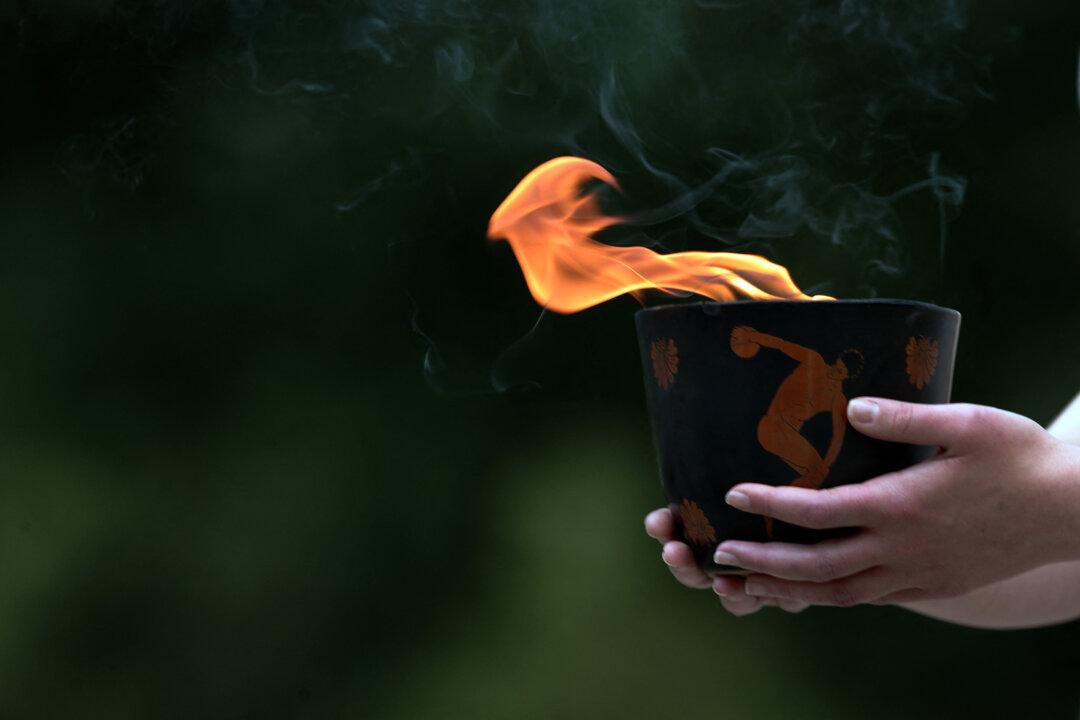What is the true story of how the Olympic Games began? John A. Martino and Michael P. O’Kane, authors of “Olympia: The Birth of the Games,” have endeavored to tell that story in their new novel. This historical fiction account takes the reader back to the year 776 B.C., in the Greek city of Olympia.
The story, however, doesn’t revolve around Olympia. Rather, it revolves around the region as the reader follows the exhilarating and often bloody adventures of Pelops, the son of the priest of Olympia. Pelops is a man of peace in a world of continual wars. The authors express a cycle of violence that no one believes can be—and most don’t want to be—stopped.






